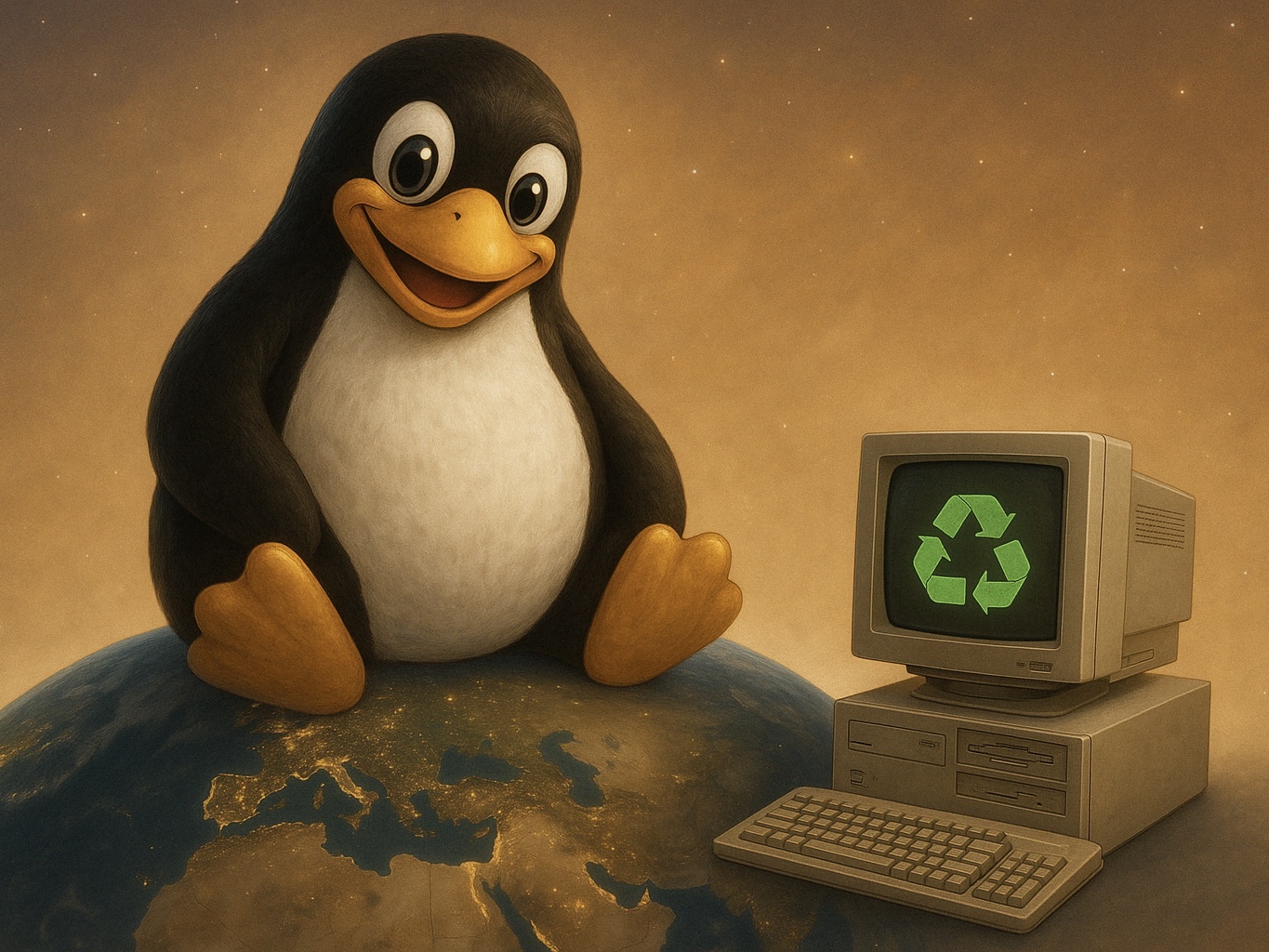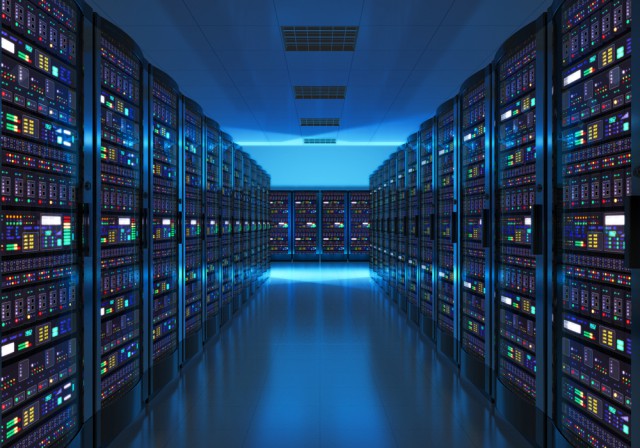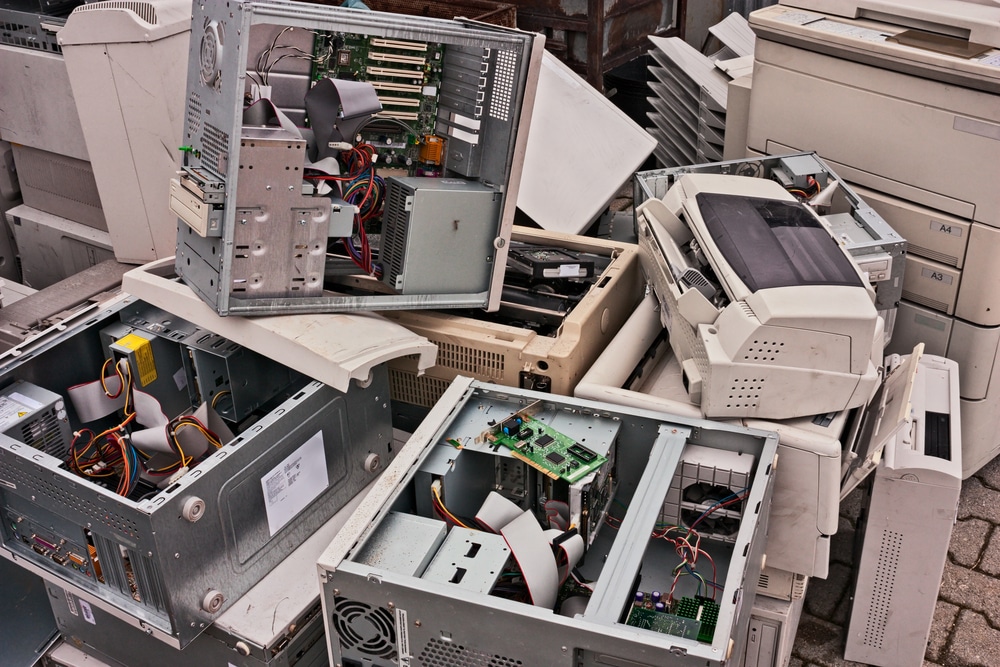
Install Linux on your old PC to save it from the landfill this Earth Day
Earth Day is tomorrow, and it is a time to reflect on how we treat the planet we all share (until Elon Musk colonizes Mars, at least). While some people mark the day by picking up trash or planting a tree, there’s another simple yet powerful way to help the environment that you might not have considered -- install Linux on your aging computer instead of tossing it in the trash!
Old computers don’t have to die. In fact, most of them still have plenty of life left in them -- if you’re willing to ditch bloated operating systems that no longer support them. That’s where Linux comes in. Unlike Windows 11, which demands modern processors and fairly high-end specs just to boot, many Linux distributions run smoothly on older hardware. Whether it’s a decade-old laptop collecting dust or a desktop with a failed Windows installation, Linux can breathe new life into machines that would otherwise end up in landfills.

New tool helps IT teams measure their environmental footprint
All organizations are under pressure to make their operations greener and more sustainable. But sometimes it can be hard to accurately measure the impact of your operations, especially if you're relying on cloud services.
Nutanix is launching a new tool to help organizations understand how different factors can influence their environmental footprint by estimating annual power and emissions for various solutions and locations.

A third of SMBs dispose of old hardware in landfill
As growing businesses rush to upgrade their hardware, many are simply throwing old computers, routers, and other IT assets into the trash, leading to security and environmental concerns.
A new study from Capterra of 500 IT professionals at US small and midsize businesses (SMBs) reveals that nearly a third (29 percent) indulge in improper IT hardware disposal practices.

End of life data risks sustainability targets
Environmental sustainability has a high to moderate influence on their approach to processing end of life (EOL) data for 88 percent of respondents according to a new survey.
But more than a third (39 percent) of enterprises are yet to implement a plan to reduce their data footprint, leaving them at risk of compliance failures in light of upcoming sustainability regulations.

End-user experience management delivers on cost-saving and Net Zero targets
CIOs are under constant pressure to cut costs, reduce tech waste, and increase productivity, but never more so than this year with the looming threat of recession. Rather than concerning themselves with the issues a weakened economy may bring, savvy CIOs should consider the opportunity 2023 brings to meet longstanding efficiency and sustainability goals.
By gaining observability to the health of their IT infrastructure -- specifically, the end-user experience -- executives can gain insights, software and hardware performance analysis to find critical cost reductions. An IT infrastructure review could improve efficiency and, in turn, make business more productive, profitable, and sustainable.

Why environmental impact is important to the PaaS industry [Q&A]
Businesses of all sizes are keen to reduce their carbon footprints and impact on the environment. Moving systems to the cloud can be a tempting approach but one that risks simply moving your impact elsewhere.
Leah Goldfarb has recently been appointed as environmental impact officer at enterprise PaaS provider Platform.sh, we spoke to her to discover more about the role and the importance of environmental issues to the industry.

Data center sector unprepared for expanding sustainability requirements
The latest Annual Global Data Center survey from the Uptime Institute shows an industry that remains strong but is working to address increasing pressure for sustainability progress and reporting.
The sector is also grappling with continuing staffing shortages, supply chain delays, costly outages and other complex challenges.

Why we need to face up to the e-waste problem [Q&A]
A record 59.1 million tonnes (53.6 million tons) of e-waste was generated by homes and businesses in 2019, but only 17.4 percent of it was correctly recycled, the rest ending up in landfill or other disposal routes.
With the amount of e-waste expected to grow further, it's still the case that many people simply don't know where or how to properly recycle their obsolete devices.

Micro Center embraces woke capitalism by banning single-use plastic bags
If you are a computer builder, there is a good chance you have heard of Micro Center -- one of the last major brick-and-mortar computer retailers. You can walk into the store and walk out with things like motherboards, solid state drives, graphics cards, and more. It's a really cool place to shop.
Unfortunately, starting July 1, you can no longer walk out with your purchased items in a single-use plastic bag -- at some Micro Center locations at least. Yes, the company has decided to embrace what some refer to as "woke capitalism" by forcing consumers to either bring their own reusable bag or walk out with their bought goods loose in their arms.
